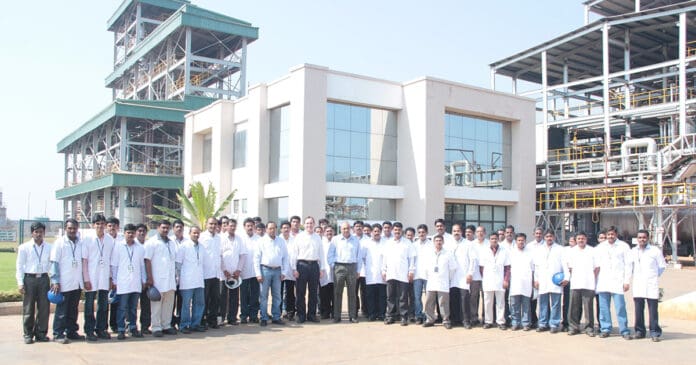Aemetis Inc. (Aemetis), a renewable natural gas (RNG) and renewable fuels company focused on negative carbon intensity products, announced that the company’s Universal Biofuels subsidiary has completed an expansion of its India biodiesel plant annual production capacity to 60 million gallons (227 million liters) more than one year ahead of schedule, supplying the expanding demand for biodiesel by India government-owned oil marketing companies (OMCs).
The Aemetis Five Year Plan describes an increase from 50 million gallons (189 million liters) per year to 100 million gallons (379 million liters) per year of biodiesel production capacity at the India plant to be completed by 2025. Additional capital projects to increase the production capacity to 80 million gallons (303 million liters) per year at the Kakinada, India-biodiesel plant are in process for completion in the first half of 2024, also ahead of schedule.
“The market for biodiesel in India continues to expand as OMCs increase the number of blending locations and the percentage of biofuel blended into diesel,” said Sanjeev Gupta, president of Aemetis International. “The Kakinada plant has expanded production by completing upgrades to de-bottleneck the plant, and the next phase will add additional process equipment to increase capacity. When production capacity reaches 100 million gallons per year, the India business will be able to generate more than US$500 million per year of revenues.”
“Aemetis continues to demonstrate our ability to design, engineer, permit, construct, and operate renewable fuels production facilities, then continually improve the energy efficiency, feedstocks, and other carbon-intensive components of operations to improve financial margins by reducing costs and increasing revenues,” said Eric McAfee, chair and chief executive officer of Aemetis. “The US ethanol business is doing relatively well due to low feedstock and natural gas costs, and our India biodiesel business continues to perform very well while increasing production capacity without incurring debt. We see our focus on reducing the carbon intensity of our renewable fuels as an expanding competitive advantage compared to petroleum fuels.”
Built by Aemetis near the eastern India port of Kakinada in Andhra Pradesh, the Universal Biofuels plant is the largest biodiesel production facility in India. Expanded biodiesel production supports the Indian government’s goal of a 5% biodiesel blend equal to approximately 1.25 billion gallons (4.73 billion liters) per year which was established in the 2022 National Biofuels Policy.
India consumes about 25 billion gallons (94.6 billion liters) per year of diesel, but India does not have a meaningful amount of domestic oil production and is dependent on imported crude oil to supply its petroleum refineries. The adoption of a 5% biodiesel blend target by the India government is expected to reduce the amount of petroleum imported into India, reduce the export of dollars to purchase crude oil, strengthen domestic agricultural producers and processors, and significantly improve air quality while reducing carbon pollution.
Petroleum diesel emissions are a significant contributor to poor air quality and health issues in India. According to the Public Health Foundation of India, air pollution causes about one of every six deaths in India and more than US$36 billion of economic losses each year.
Biodiesel used in heavy transportation reduces particulate emissions by more than 90% compared to petroleum diesel and creates domestic demand in India for agricultural feedstocks and waste byproducts to supply renewable fuel production facilities. According to Aemetis, biodiesel produced from waste feedstocks reduces carbon pollution by up to 80% compared to petroleum diesel, directly reducing the emissions of greenhouse gases that contribute to climate change.

















